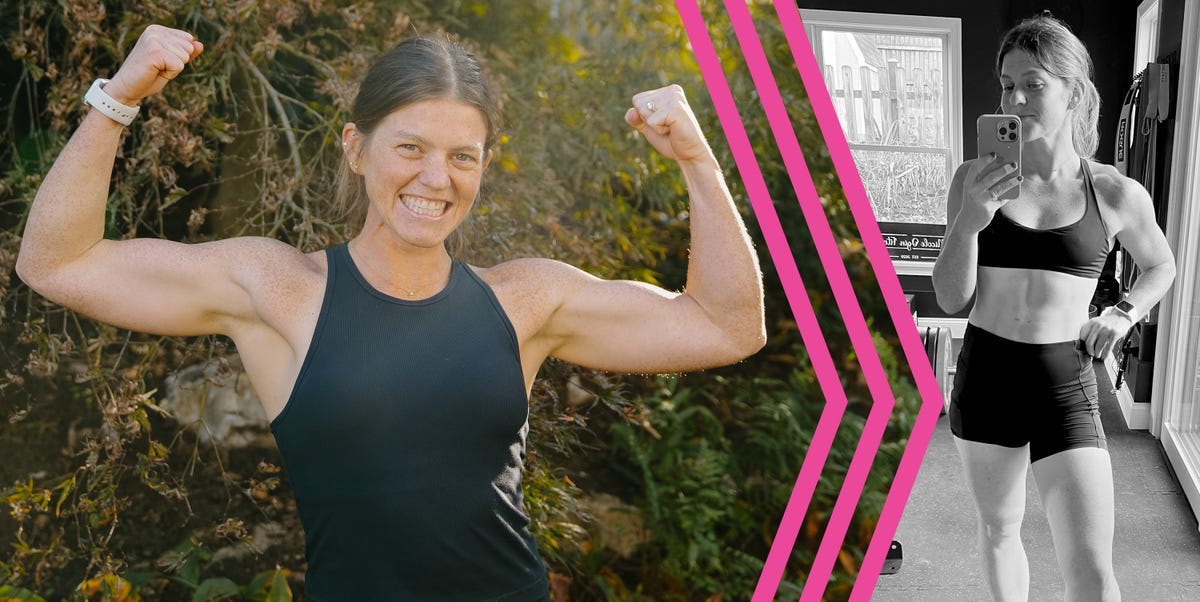
while still going out on weekends with friends. Or, so I thought.
I believed my relationship with alcohol to be pretty healthy. But, in reality, it caused a cycle of bad habits that fed into one another: Monday through Friday, I ate, exercised, and slept well, and didn’t drink. Then, I’d go out on Friday night and be hungover and lay on the couch all day on Saturday. This pattern would continue for the rest of the weekend, and then I’d restart my healthy routine on Mondays.
Throughout all this, I always felt like I needed to lose weight – despite never being overweight. Growing up, I had a lot of self-confidence issues and I was always comparing how I looked to other women. Amidst this cycle, I was never satisfied with how my body looked. My weight stayed the same and I didn’t understand at the time that eating well and exercising during the week could be counteracted by my habits on weekends.
suddenly felt so much worse. And after one really bad one, I realised I simply didn’t want to feel like that anymore. I knew I had the potential to feel better in my body, but not if I continued my yo-yo lifestyle.
The day after that bad hangover, I quit drinking cold turkey (which was hard) and reached out to a therapist. After some reflection, I realised a lot of my drinking stemmed from social anxiety, so the first year I was sober, I didn’t go out much at all to prevent myself from feeling anxious. I didn't want to put myself in a position where I felt pressured to drink either. For the most part, I snuggled on the couch with my dogs and husband watching Netflix.
135 kilograms (300 pounds), and that felt really good. As I progressed, lifting made me feel like I could do anything I wanted, as long as I was positive and stuck to a plan.
After I deadlifted 135 kg, I backed off from heavy lifting because I’d accomplished a lot. Plus, I had a hamstring injury that hurt when I deadlifted but not when I ran, so I decided to focus on running. This time, my mindset around running was completely different: I was no longer using it as a way to burn calories, and instead, I focused on how good I felt after runs. Runs gave me a dopamine hit that replaced the rush I got from drinking.
caused a domino effect with the rest of my habits.
, which has helped a lot.
a lot less stressed, which has been my biggest transformation.
My body has never felt better and I feel so healthy and clear-headed. I love waking up not hungover on a weekend morning and having a great workout. My sessions feel great, my recovery and sleep are amazing, and my circadian rhythm is just right.
, and lunges. My rest day is usually a couch potato day, so I usually only get about 4,000 steps and walk my golden retrievers.
On the weekends, my husband (and dogs) and I also hike on nearby trails in Maryland, where we live.
My 3 biggest revelations from improving my fitness by going sober
1. I was finally able to make consistency a priority
When I still drank, it was easy to give myself an out from working out due to not feeling my best or being hungover. Having energy and feeling well and rested allows me to show up consistently. What’s more, I’m motivated to work out and go after my fitness goals given that I am not losing time to hangovers on weekends.
that sensation of feeling amazing inside and out after a workout, which keeps me going. Sometimes I struggle with motivation to run or lift, so after I finish my workouts, I literally tell myself to remember how good I feel. Then, the next time I feel unmotivated, I remember that feeling and try to replicate it, and that really helps.
2. Slow progress is sustainable progress
It can be tough to wait to you see major changes to your physical and mental health, but when it takes longer, it’s more sustainable. After becoming sober, I surprisingly never felt tempted to drink, but breaking a bad habit was still hard. To get through it, I saw my therapist every week for a year and meditated for six months straight. It took me two years of being sober and consciously tweaking my habits to become a healthier, happier version of me – and that gradual transformation was so worth it to really create these permanent results.
3. It amazed me what tweaking seemingly small daily habits could do for my overall wellbeing
Quitting drinking allowed me to improve my other daily habits, like home-cooking meals and sleeping more. Even small adjustments, like taking a midday walk or getting in bed an hour earlier at night, compounded over time and made enormous differences in my energy and overall happiness.
I also found it much easier to change one little thing every day as opposed to trying to make a ton of huge changes at once (plus, not drinking was already one huge change happening for me!).
From:
More fitness inspo:
- I lost weight and gained muscle for the first time at 49
- ‘I walked 25k steps per day for a year, here are 12 things I’ve learned’
- Running challenge: 'I ran every day for 100 days, and this is what happened'


Post a Comment
0Comments